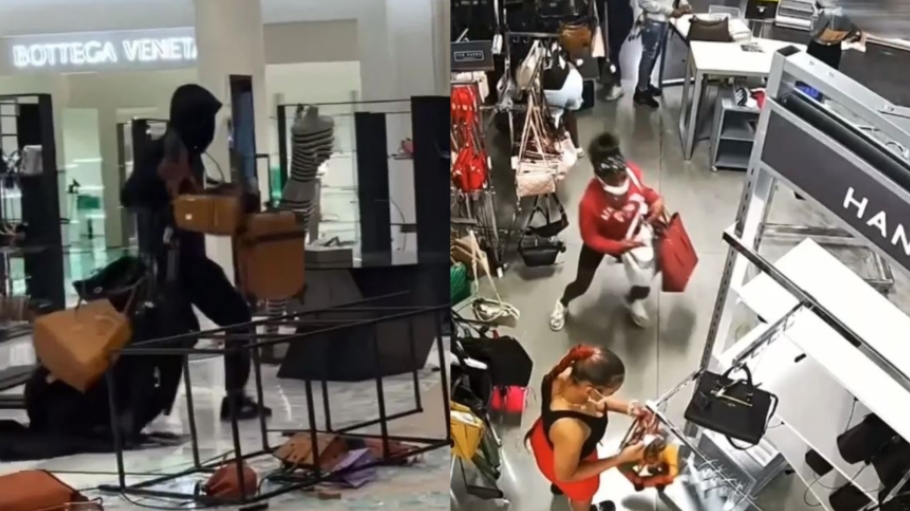The wave of thefts in Los Angeles, targeting both retail and residential properties, appears to be reaching a critical point. Two incidents in August highlight this growing trend.
On August 17, a homeowner in Cerritos shot a burglary suspect, leaving him in critical condition. On August 31, another homeowner in Winnetka, northwest of Los Angeles, stabbed a burglary suspect during a pre-dawn break-in. The homeowner’s daughter discovered the intruder, and a violent confrontation ensued. In both cases, the use of weapons seemed more about protecting loved ones than simply stopping a burglary.
These cases are ostensibly acts of self-defense, but there is also an undercurrent of “self-help” in the face of the rising tide of burglaries. There are signs that citizens, initially alarmed and upset by the thefts that have become all too common, are now losing trust in law enforcement and are taking matters into their own hands. With no one to turn to, desperate individuals may feel compelled to defend what is non-negotiable—whether it be property or family. This is especially true if they have access to a weapon.

This raises a key question: If burglaries are so prevalent, why have so few resulted in violent confrontations, especially given the right to bear arms?
It may not be easy for the average person to use a weapon against another, even in self-defense. The fact that ordinary civilians are now doing things they never thought they would is a reflection of the deep fear and distrust of law enforcement.
For criminals, burglary is not just a petty crime—at least not in the United States. In Los Angeles, house burglaries were once a rite of passage for gang members. In areas where it’s legal to carry firearms, burglary is a life-threatening crime. If a home is occupied and the owner is armed, the intruder could easily be killed. One of the latest burglary trends is installing cameras around a house to ensure it’s unoccupied—akin to gang hazing rituals.
In the U.S., burglaries can turn deadly. For homeowners, there’s the fear that the burglar might be armed. For burglars, there’s the risk that the homeowner may have a gun. Burglary is considered a misdemeanor under sentencing guidelines, but the stakes are high. In the end, the risk is high, and the reward is low. This also holds true for theft from retail stores.
What we’re seeing now is the result of this long-standing balance in LA. The profits from burglary have increased, while the risks have decreased.
Three key deterrents to crime are the fear of detection, the fear of arrest, and the fear of punishment. The fear of punishment was reduced when Los Angeles lowered theft under $950 to a misdemeanor and effectively eliminated bail for such crimes. As police forces weakened, so did the fear of arrest.
All that remains is the fear of detection. It’s no wonder that some homeowners are deciding to take matters into their own hands.
Meanwhile, the profits from theft have risen. In the past, burglars had to sell stolen goods cheaply and discreetly on the street. Now, they can sell them online for the same price as legitimate items. This shift has made theft routine and organized. Large retail chains and affluent neighborhoods have all become targets.
To stop this theft wave, we must break the low-risk, high-return cycle. One of the first steps is addressing the root cause of the situation: administrative expediency. Rather than building more detention centers, the government reduced the prison population by softening penalties for minor offenses. At the same time, budget cuts reduced the size of the police force.
However, defining “minor offenses” based on the amount of damage is simply a matter of administrative convenience. Fortunately, police forces are being restored to their former levels. Now is the time to rebuild standards and demonstrate, through action, a commitment to stopping and punishing crime. Only then people will no longer feel the need to take the law into their own hands.

By Yoohoi Ahn
The author is an editor in the newsroom of the Korea Daily.




